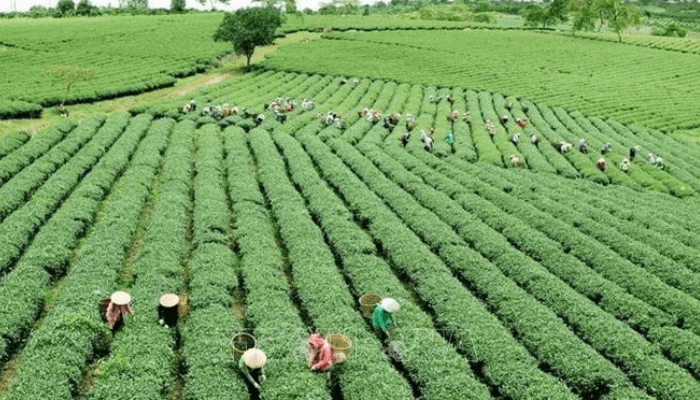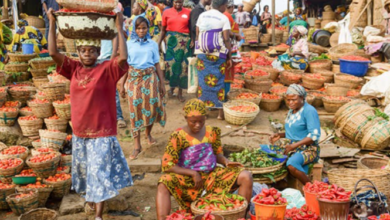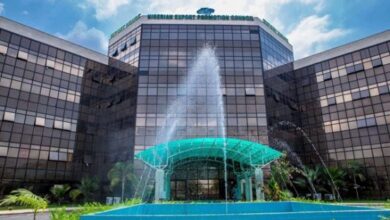Cooperative model drives green growth for Nigeria’s agric push

Source: BusinessDay
Experts say cooperative models are emerging as a game changer for agricultural growth and environmental sustainability, driving access to finance and shared prosperity among smallholder farmers.
A cooperative model allows individuals to voluntarily pool resources to meet shared economic or social needs. In states like Cross River, this approach has boosted agricultural productivity by improving access to inputs, funding, and collective support systems, according to reports.
At BusinessDay’s National Workshop on ‘Air Pollution and Agricultural Productivity’ held on November 6, 2025, in Lagos, stakeholders emphasized that cooperatives are central to strengthening public-private partnerships and building resilient food systems.
With the theme ‘Air, Land and Livelihoods: Building a Sustainable Agricultural Future for Nigeria,’ the workshop convened key players across agriculture, finance, governance and sustainability to explore strategies for green growth.
Bankole Oloruntoba, country lead at the Nigeria Climate Innovation Center (NCIC), said farmers are more likely to secure funding when they adopt cooperative models.
“There are too many disaggregated small holder farmers out there who cannot access funds easily,” he said.
“Cooperative models enhance farmers’ capacity to pool resources, support one another, and attract investors,” he noted during a panel session of industry experts.
Abiodun Olorundero, Founder of Prasinos Farms, added that informal cooperatives,such as pooling resources from family and friends,remain vital for farmers facing limited access to institutional finance.
Backing this, research by Ajah Agom’s team found that cooperative societies in Cross River State recorded a 94.5 percent loan approval rate across 30 surveyed groups, demonstrating their growing impact on financial inclusion and rural empowerment.
Gas flaring, a threat to green growth
Air pollution and land degradation are fast becoming major threats to farmers’ productivity, health, and livelihoods across Nigeria.
Experts warn that human-driven activities, including overgrazing, deforestation, oil spills, and excessive pesticide use, are worsening local climatic conditions and cutting crop yields.
Gas flaring remains the most damaging factor. The World Bank estimates global flaring at 150 billion cubic meters annually, releasing 389 million tons of carbon dioxide.
Arinze Nwokolo, assistant professor at Lagos Business School, highlighted its devastating toll on Nigeria’s oil-producing states.
“For every farmer within a 20km radius of a gas flaring site, agricultural productivity and crop yield decline by 18 percent, a significant loss for our food security agenda,” he said, citing data from the National Oil Spill Detection and Response Agency (NOSDRA).
He added that “gas flaring is more common among local oil explorers than multinational firms,” noting weak enforcement.
“Companies are charged as little as $2 per 228.317 standard cubic meters of flared gas, even after producing up to 50,000 barrels per day,” Nwokolo said.
Olorundero (earlier quoted), shared firsthand losses linked to worsening climate impact. “After weeks and months of irrigation, I woke up to realize that crops on my 10-acre farmland had completely withered,” he said.
“This is clearly an environmental factor, I did everything right in terms of manure, irrigation, and seed planting.”
“What’s most worrying is the low yield,” he added. “Imagine we’re still talking about one ton of maize per hectare, while South Africa produces up to 7 tons.”
Balancing agric growth and environmental sustainability
To achieve sustainable agricultural growth and environmental preservation,key pillars of the 2030 Sustainable Development Goals, experts emphasised the need to translate sound policies into concrete actions while fostering strategic partnerships that empower farmers to boost productivity in harmony with nature.
The event highlighted how weak policy implementation and unsustainable farming practices continue to hinder farmers’ productivity, health, and overall livelihoods.
Nenibarini Zabbey, project coordinator of the Hydrocarbon Pollution Remediation Project (HYPREP), represented at the event, underscored the importance of collaboration in achieving sustainability.
“In ensuring sustainable agricultural practices, we have engaged in several remediation projects aimed at cleaning up oil-polluted lands and ensuring they are certified by relevant agencies like National Oil Spill Detection and Response Agency (NOSDRA) for agricultural use,” he said.
“These achievements are possible only through the strategic partnerships we’ve built across government agencies, tertiary institutions, and farmers,” he added.
On the policy front, Terry Akaluzia, team lead for Mergers, Acquisitions and Private Equity Practice at Olaniwun Ajayi, pointed out that Nigeria’s challenge is not the absence of policies but their weak implementation.
“Nigeria is not policy-deficient; implementation is the major challenge,” he said. “Until policies are translated into enforceable laws, implementation will remain ineffective, as fragmented legal frameworks stall progress,” he added.
Experts agreed that translating strategic intent into coordinated action through inclusive partnerships and enforceable policies will be pivotal to ensuring sustainable agriculture and reducing environmental pollution in Nigeria.
Other challenges farmers face
Experts highlighted key challenges confronting farmers, including skill gaps, limited access to extension services and funding, poor-quality seedlings, erratic rainfall, floods, droughts, post-harvest losses, weak logistics, and inadequate large-scale distribution of vital inputs such as organic manure.
Dealing with the challenges
Experts have outlined several sustainable practices to help farmers overcome productivity challenges and build climate-resilient agricultural systems in Nigeria.
They emphasised the adoption of organic manure instead of chemical fertilizers, strengthening local partnerships, and training more agricultural extension workers to bridge knowledge gaps and keep farmers informed. Addressing skill shortages in operating and maintaining modern farm equipment was also identified as critical.
“Skill gaps are a major challenge that must be addressed. People need training on how to use and repair modern facilities,” Olorundero stated.
Other environmentally friendly solutions recommended by experts include using battery-powered tricycles for short-distance logistics, installing solar-powered cold rooms to reduce post-harvest losses, and converting agro-waste into briquettes as a clean biofuel source.
“Every technology adopted for remediation must be environmentally friendly — that is the surest path to a sustainable agricultural future,” added Zabbey.
Investment opportunities
Despite these challenges, experts identified emerging opportunities to promote smart, eco-friendly agricultural practices — including increased investment in local processing, rural infrastructure, farm estates, renewable energy, cold-chain logistics, storage facilities, and large-scale agricultural shipping.
The event was attended by the Lagos State commissioner for Agriculture Abisola Olusanya(ably represented by Adegboyega Idris) and other notable personalities.
Frank Aigbogun, publisher at Businessday Nigeria gave the opening speech while addressing the need to strike a balance between agricultural growth and environmental sustainability.
The panel session consisted of four members who addressed critical areas of smart agricultural practices and environmental protection.




